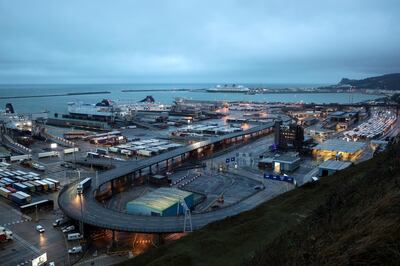Unaccompanied child migrants are facing lengthy stays in a warehouse facility designed to hold them for just a few hours while they are processed, a charity which supports refugees and asylum seekers said.
Its fears stem from last week's Kent County Council decision to turn away unaccompanied child migrants after saying it had reached capacity.
“We're really concerned we're going to see a situation like we saw last summer, where young people ended up in the Kent Intake Unit which is a building in the port in Dover,” Kent Refugee Action Network’s Bridget Chapman told the BBC.
“It's meant for people to be in there for a few hours and we saw children there for up to 72 hours last year.”
Kent Intake Unit falls under the jurisdiction of the UK Home Office. The National asked the ministry for a response to KRAN's concerns but is yet to receive one.
The situation is not an insoluble one, said Ms Chapman, who lays the blame at the door of central government, not Kent council.
“The fact is there are local authorities around the country that said they stand ready and willing to take these young people but what's holding them back is that this is not funded properly by central government.
“It costs money to look after young people whatever background they're from. That's an investment in the future that's going to pay for all of us.”
Kent council leader Roger Gough said in practice this meant each council taking only a handful of child migrants.
He also said it was within the home secretary’s power “to mandate” the transfers but that no incumbent had been willing to do so since 2016.
If Home Secretary Priti Patel proves similarly minded, then the government’s recently announced national transfer scheme will meet with strong resistance from local authorities up and down the country.
With hundreds of child migrants likely to land on the Kent shore over the coming summer months a bigger crisis could develop, should a solution not be found.


